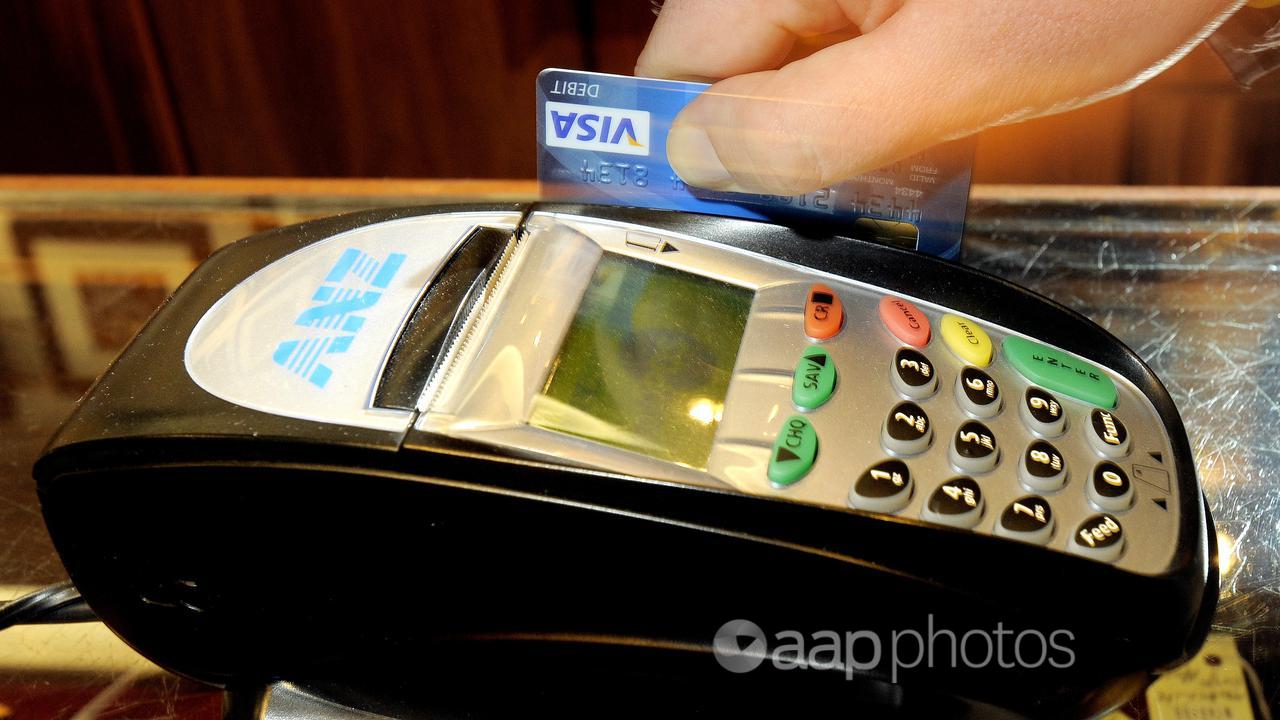Amid an election “scare campaign” over the potential expansion of the government’s cashless debit card (CDC) scheme, a widely shared social media post claims welfare recipients on the cards are hit with transaction fees for every purchase.
But the claim is largely incorrect. The card uses the Visa Debit system and as such all transactions incur fees of between 0.5 per cent and one per cent. Official survey figures show only a very small share of debit card payments nationwide result in the charge being paid by customers rather than merchants.
The cashless debit card program quarantines up to 80 per cent of welfare payments into a restricted bank account accessed by a card that does not allow cash withdrawals or spending on alcohol, gambling or cash-like products.
However, the scheme has been criticised for stigmatising participants, while some argue it disproportionately and unfairly targets people in Indigenous communities.
In an April 8 Facebook post (see screenshot here), advocacy group the Older Women’s Network NSW told its followers that “every time you use the card, you have to pay a transaction fee.”
The post, which includes various other claims about the card, goes on to describe the cashless debit card scheme as “inhumane” and declares the organisation is “100% against it”. At the time of writing, the post had been viewed more than 200,000 times.
When contacted by AAP FactCheck about the basis of the claim, a spokeswoman for the Older Women’s Network NSW said: “There is a fee levied to use the card. Ask any merchant. It is either absorbed by them, or the cost is passed back onto the consumer.”
A spokesman for the Department of Social Services, which oversees the operation of the cards, told AAP FactCheck in an email the post’s claim that users had to pay a fee on each transaction was false.
The card’s conditions of use booklet (page 18) states: “There are no account fees or fees for depositing or making a payment from your Account charged by us. However some stores and some other financial institutions (who provide payment terminals for stores) may themselves impose fees for the use of their payment facilities.”
Monash University senior lecturer Luke Greenacre, who has studied the impact of the cards, said fees on CDC transactions were the same as those on any other bank cards that used the Visa Debit system.
“All transactions passing through that system typically incur a 0.5-1 per cent transaction fee from Visa itself that is often borne by the retailer,” he said. “This fee can be passed on to the customer though.”
The Reserve Bank of Australia’s latest Consumer Payments Survey, published in September 2020, found just 3.4 per cent of debit card payments resulted in a surcharge being paid by the customer.
However, Dr Greenacre noted that cashless debit card holders were likely to be at a disadvantage when retailers do pass on the fee.
“Card holders cannot as easily switch to cash as they have limited cash, so are more likely to be forced to incur surcharges,” he said.
He added that users had reported fees, particularly earlier on in the rollout, when using the card to check their balance at ATMs.
“In remote areas there was often only one ATM available so they had no choice but to use it, and they are typically not run by a big bank which makes these transactions free, they were run by private ATM providers that do charge fees,” he said.
AAP FactCheck has previously debunked false claims that cashless debit card provider Indue is paid $10,000 per card each year, and that the government intends to put all aged pensioners on the cards.
The Verdict
The claim that cashless debit card users have to pay a transaction fee for each purchase is largely incorrect. As with all Visa Debit cards, a small fee applies to each transaction but these charges are usually borne by merchants rather than customers. Research from the Reserve Bank of Australia found such fees were typically passed on to card users in less than four per cent of transactions.
Mostly False – The claim is mostly inaccurate but includes minor elements of truth.
* AAP FactCheck is an accredited member of the International Fact-Checking Network. To keep up with our latest fact checks, follow us on Facebook, Twitter and Instagram.
All information, text and images included on the AAP Websites is for personal use only and may not be re-written, copied, re-sold or re-distributed, framed, linked, shared onto social media or otherwise used whether for compensation of any kind or not, unless you have the prior written permission of AAP. For more information, please refer to our standard terms and conditions.


















